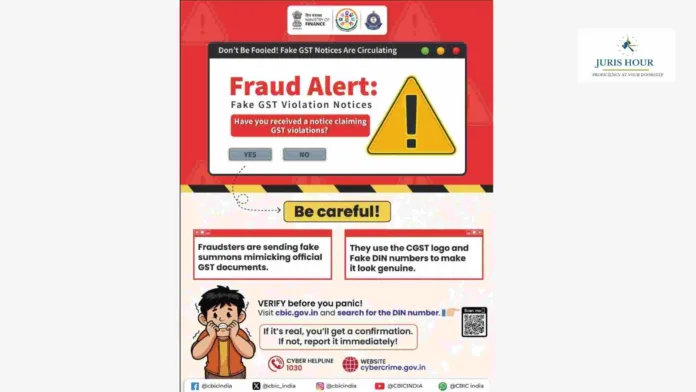A startling case of alleged “tax terrorism” raised by a businessman on social media has taken an unexpected turn after investigations revealed that the purported GST officer demanding bribes was, in fact, an impersonator.
On August 22, Ashish Dixit, an entrepreneur, took to social media platform X (formerly Twitter) alleging harassment by a GST officer in Etawah, Uttar Pradesh. In his viral post, Dixit claimed that his vehicle had been seized on the grounds of selling a monocarton box at ₹8.40 instead of the “market price” of ₹10. He further alleged that the officer, identified as “S.K. Tripathi,” had repeatedly demanded a bribe of ₹25,000, and he even claimed to possess a recording of the conversation.
“It is total harassment. Too much for ease of business in India… This gentleman is asking for bribes again and again,” Dixit wrote, tagging Finance Minister Nirmala Sitharaman, Prime Minister Narendra Modi, Uttar Pradesh Chief Minister Yogi Adityanath, and other officials.
The post quickly gained traction, amassing over 1 million views, sparking a heated debate over “ease of doing business” and corruption in tax enforcement.
CBIC’s Swift Clarification
Responding promptly, the Central Board of Indirect Taxes and Customs (CBIC) verified the claim and clarified that no such officer existed in either the Central GST or UP State GST departments.
Dixit later issued a follow-up statement acknowledging the clarification:
“On verification by CBIC, it was found that the person was neither from CGST nor UP State GST – I was misled by a miscreant. I urge everyone to stay alert. My sincere thanks to CBIC for their prompt and necessary action. UP govt is taking action against the person who tried to commit fraud,” he wrote.
UP Police Action Initiated
Authorities in Uttar Pradesh have now launched an investigation to trace the impersonator who attempted to defraud the businessman by posing as a GST officer. Legal experts note that impersonating a government officer and attempting to extort bribes is a serious criminal offense under the Indian Penal Code.
Larger Concerns Remain
While the incident highlights the effectiveness of CBIC’s rapid verification, it has also raised concerns about the growing menace of fraudsters exploiting the fear of tax authorities. Industry bodies have repeatedly urged the government to protect small and medium businesses from such harassment—both genuine and fraudulent.
Read More: ICAI Launches Handbook on Inspection, Search, Seizure and Arrest under GST to Aid Tax Professionals

